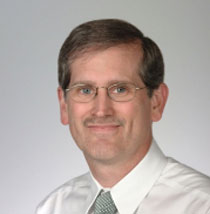About
Michael Kern’s training started with a BA in Biology and then a Ph.D. in Microbiology and Immunology with a focus on Immunogenetics. He then studied Developmental Biology and morphogenetic processes as a Postdoctoral Fellow in the NIH funded Program of Excellence in Heart and Lung. At that time, he was focused on heart developmental biology from a genetic and cellular perspective. His research at MUSC has focused on continued analysis of genetic and cellular aspects of development and disease within the heart and craniofacial tissues. His faculty appointment at MUSC for the last 20+ years has fostered collaborations and interactions with many people and diverse research projects. Michael’s interactions with the Dental School initiated a long standing professional and personal relationship with Dr. Hai Yao. Initially, he was Dr. Yao’s mentor on the Dental COBRE, then later they collaborated on his TMJ project which received an NIH- R03 award, and an NIH-R01 award. Dr. Yao and Michael have also expanded their collaboration to include an analysis of the Inter Vertebral Discs at the bioengineering level. His role in all these projects is to provide his cell and molecular biology expertise. For more information, see his Curriculum Vitae.
How their research is transforming health care
Michael’s current research is focused on congenital birth defects particularly cleft palate, tooth malformations, salivary gland defects, TMJ, and intervertebral discs. The research in his lab is particularly focused on a group of 16 human homeobox genes that play a role in the development of many of these tissues. Many of these 16 genes also play a role in other diseases such as diabetes. He and his team are examining the proteins that interact with these 16 and studying how these interactions can modulate or reverse the function of these 16 genes. They are testing one of the genes and particularly a mutation in it that is thought to cause Agnathia Otocephaly, a particularly devastating congenital malformation in which the mandible does not form at all as well as underdeveloped ears and throat. This constellation of defects is sadly not compatible with life after birth. His research is also highly collaborative in working with Clemson faculty such as Dr. Hai Yao. He has studied the TMJ and how it is altered in function, composition, cellular activity, and molecular aspects of diffusion and energy consumption. Michael and Dr. Yao have published together and are working on an NIH funded grant to study the basic biology and develop a model to better simulate TMJ function in health and disease.
Health research keywords
Craniofacial Development, Oral Health, TMJ, Cleft Palate, Bone Biology, Homeobox, Ectodermal Dysplasia

